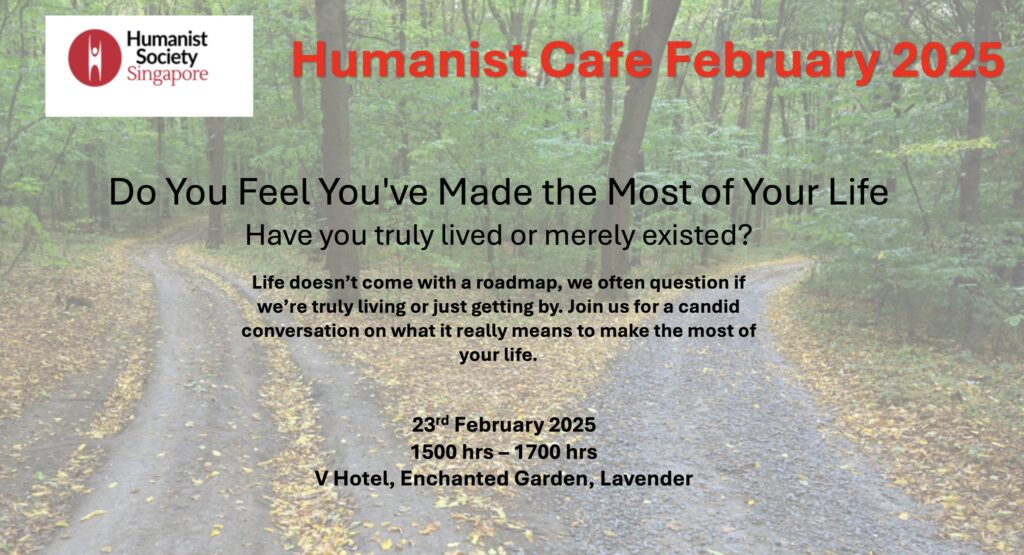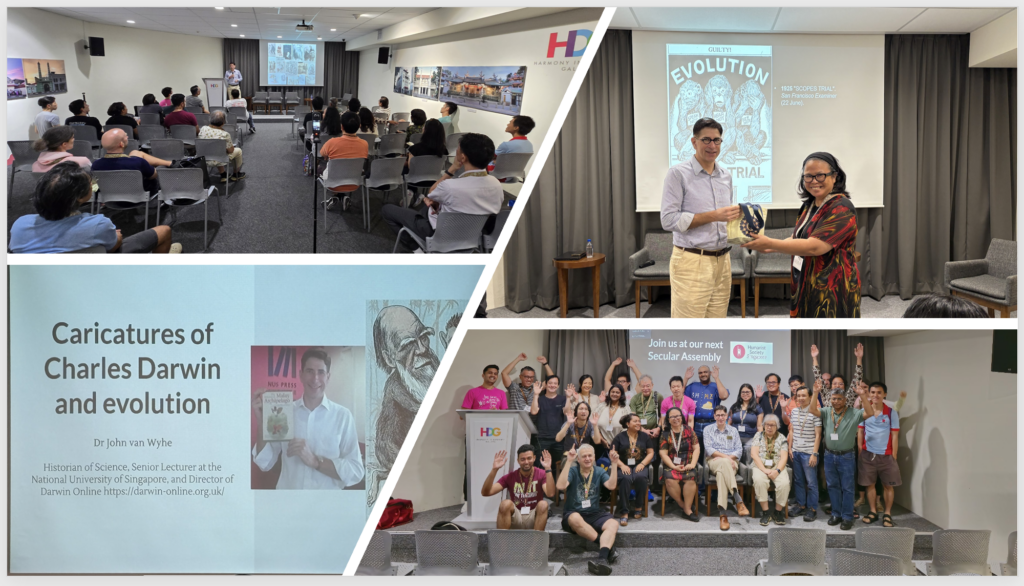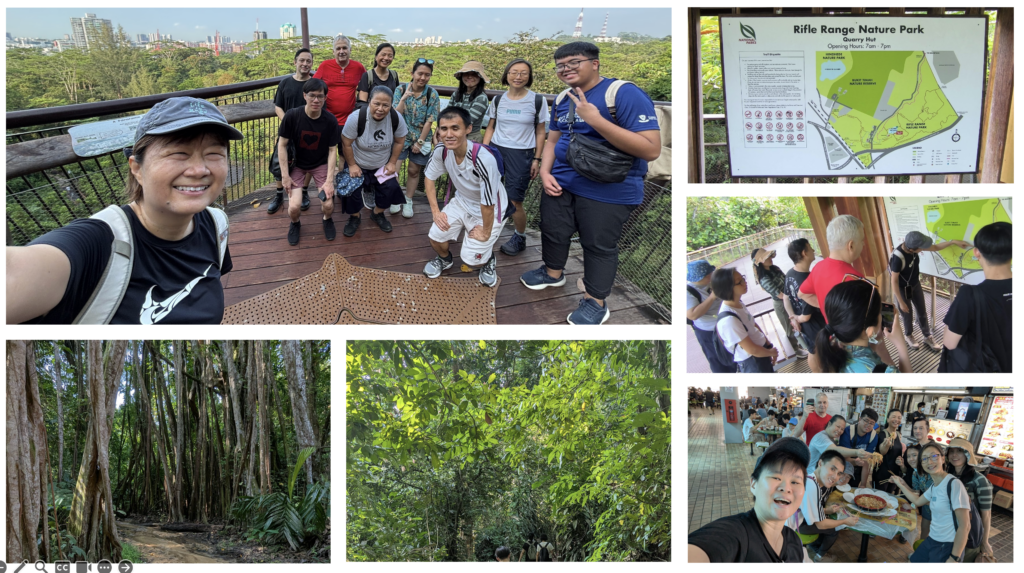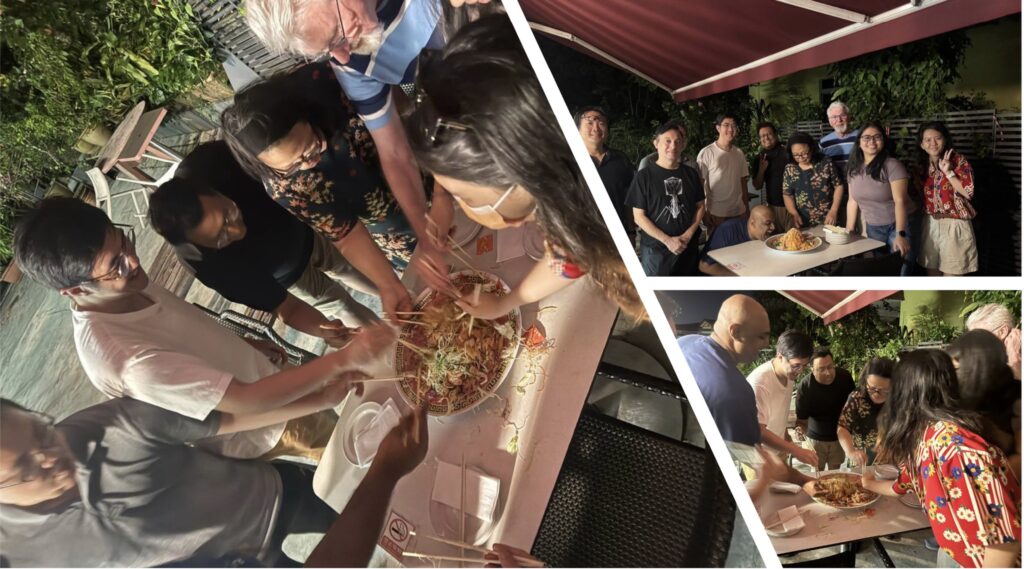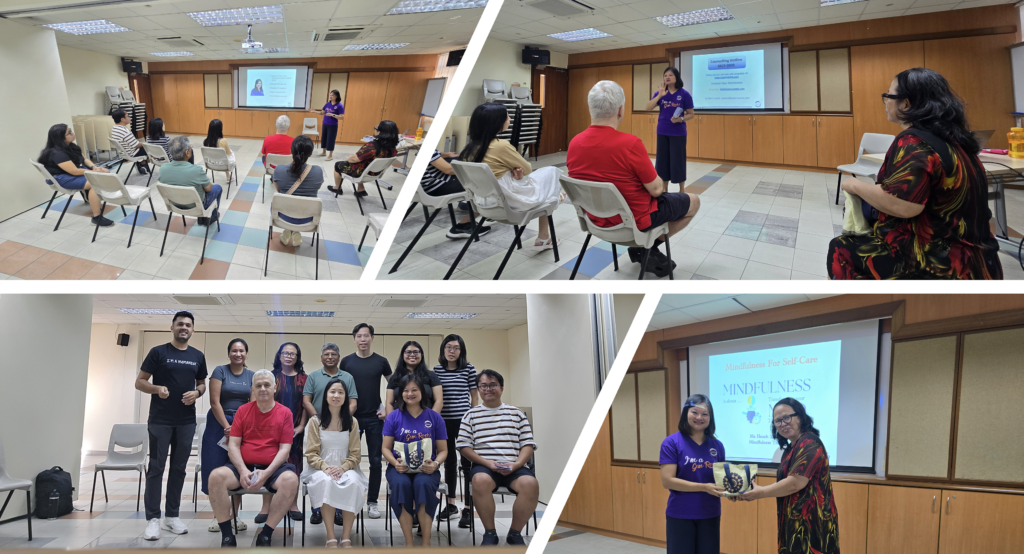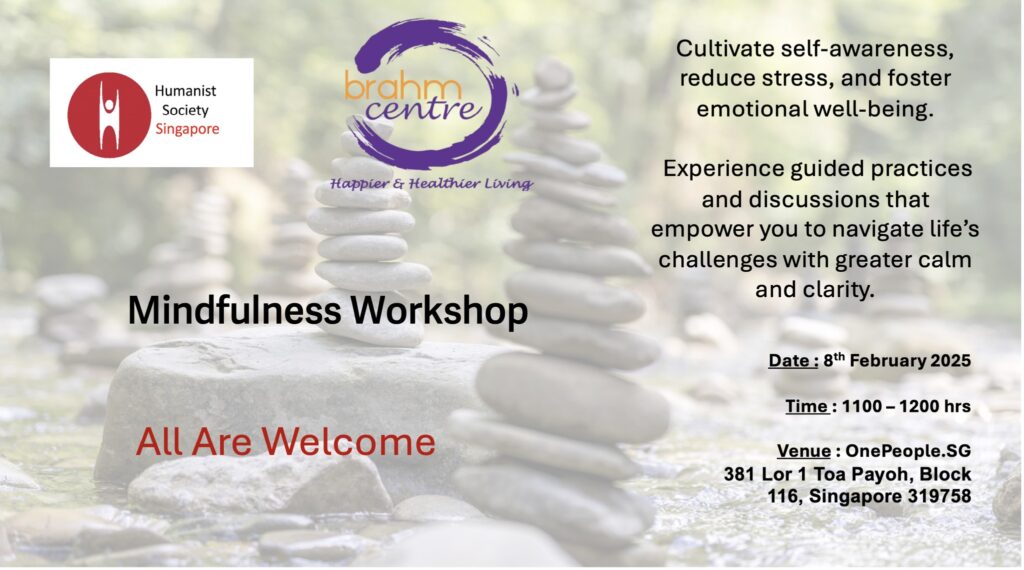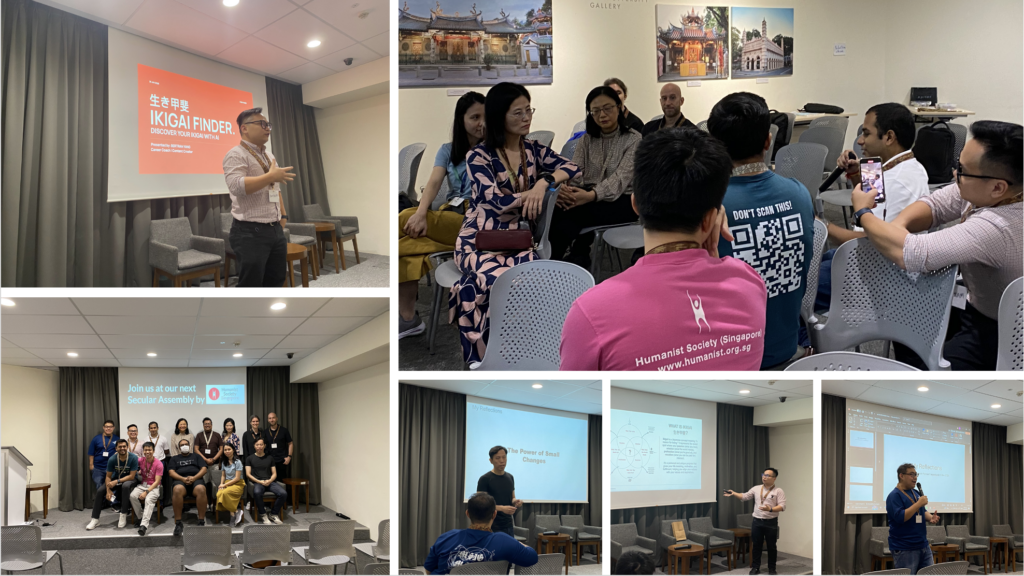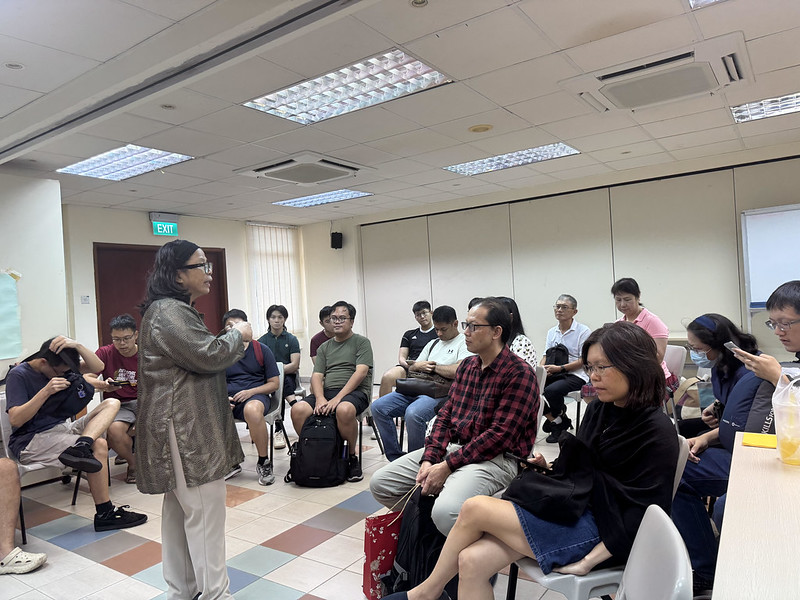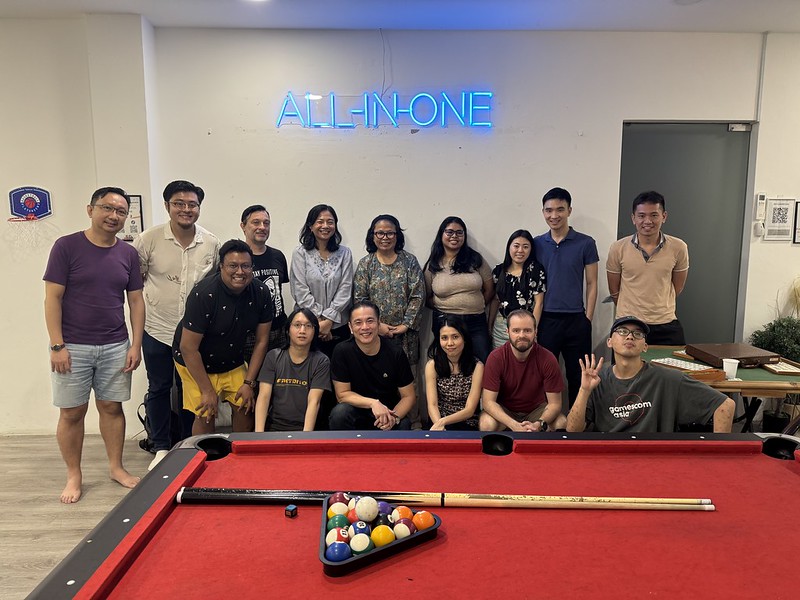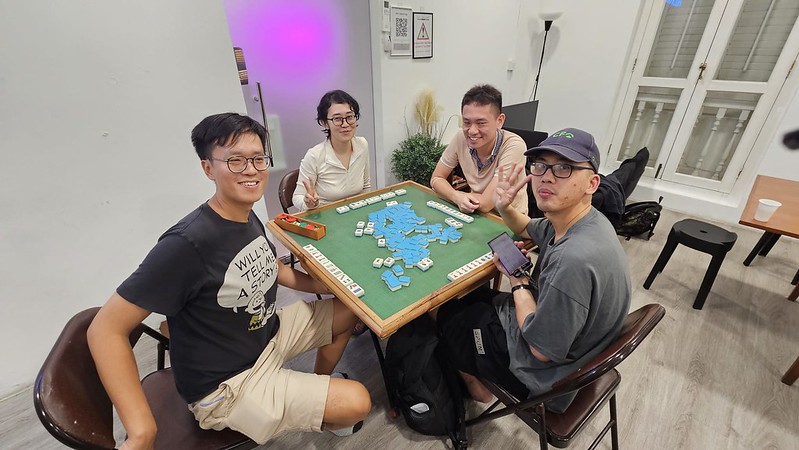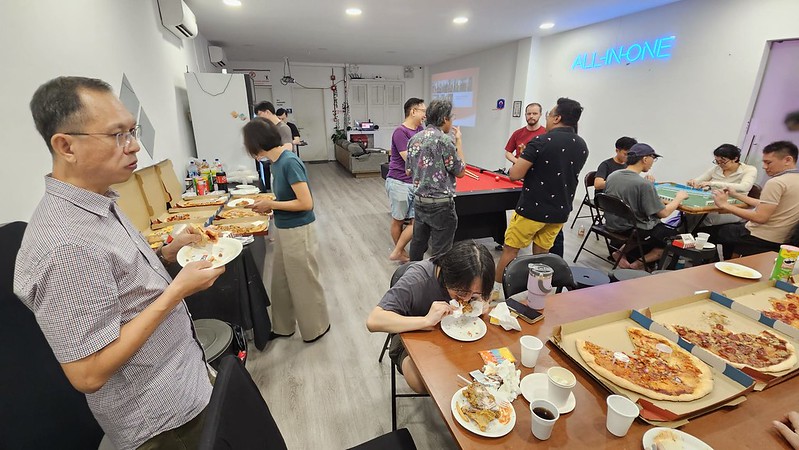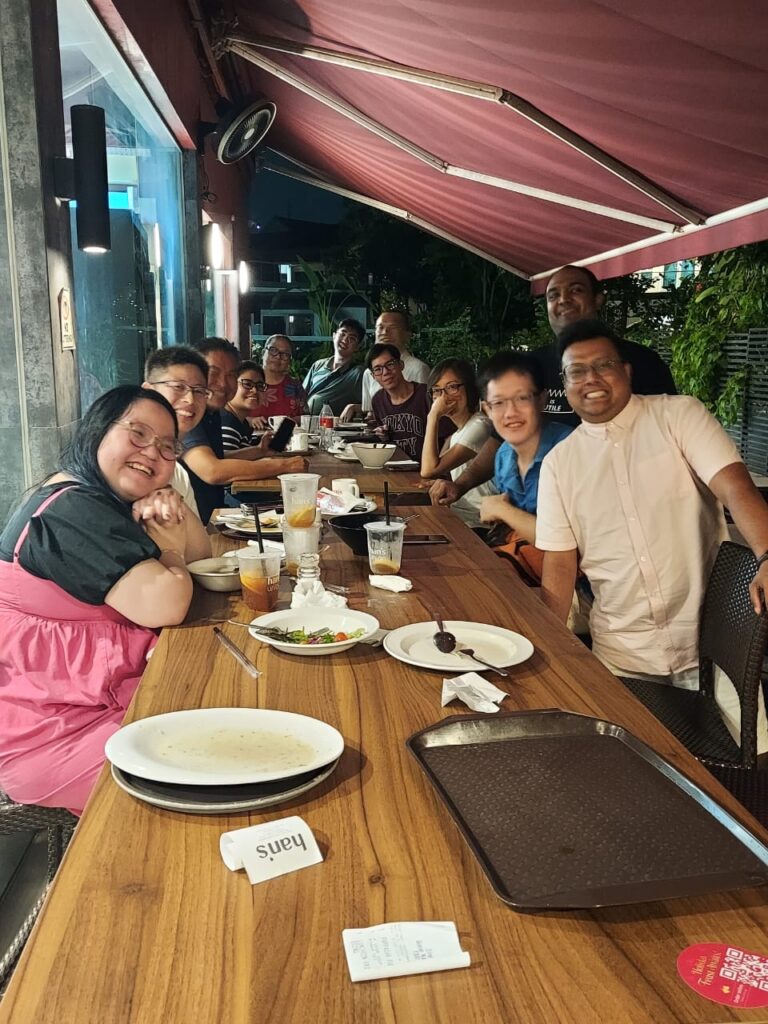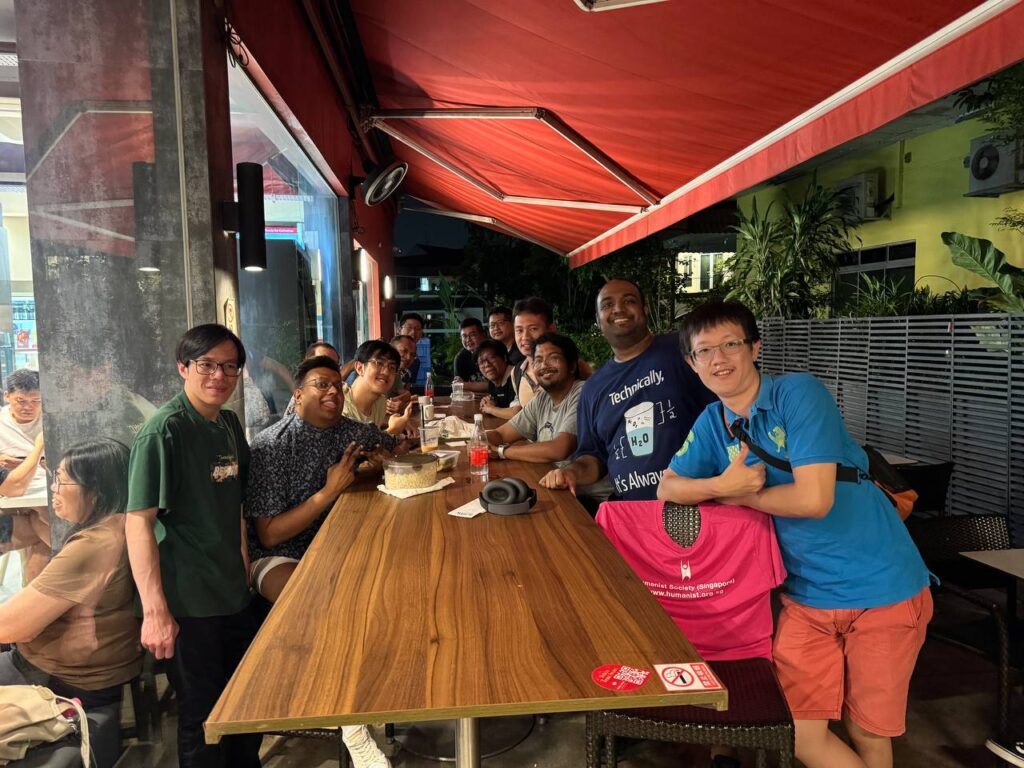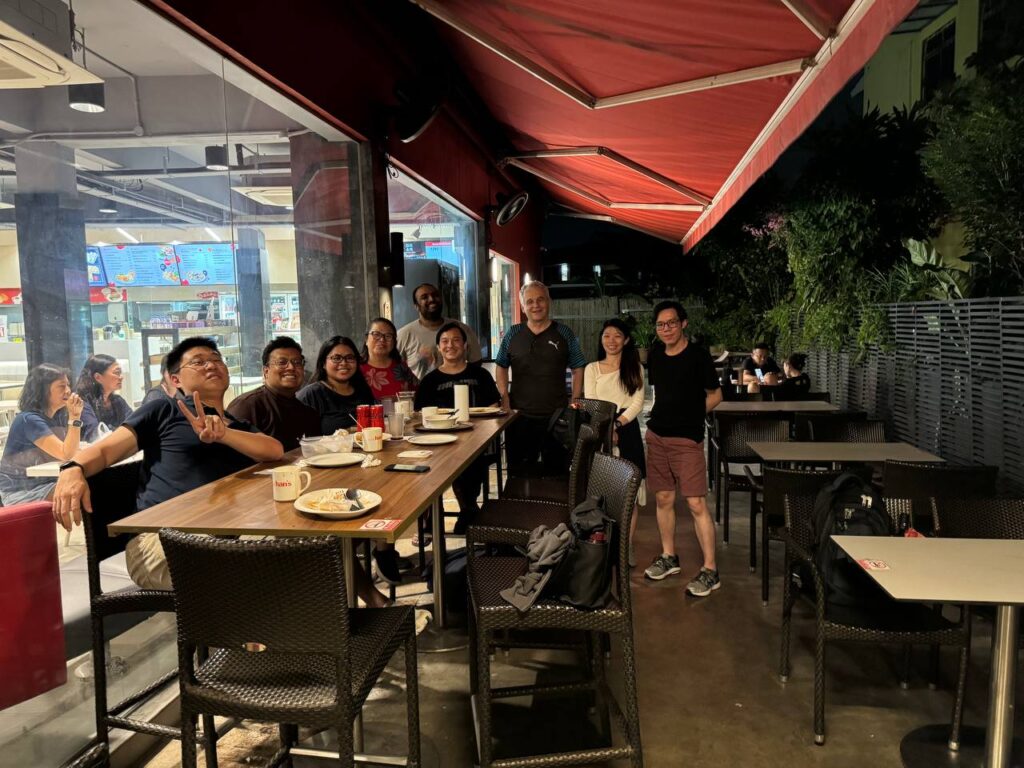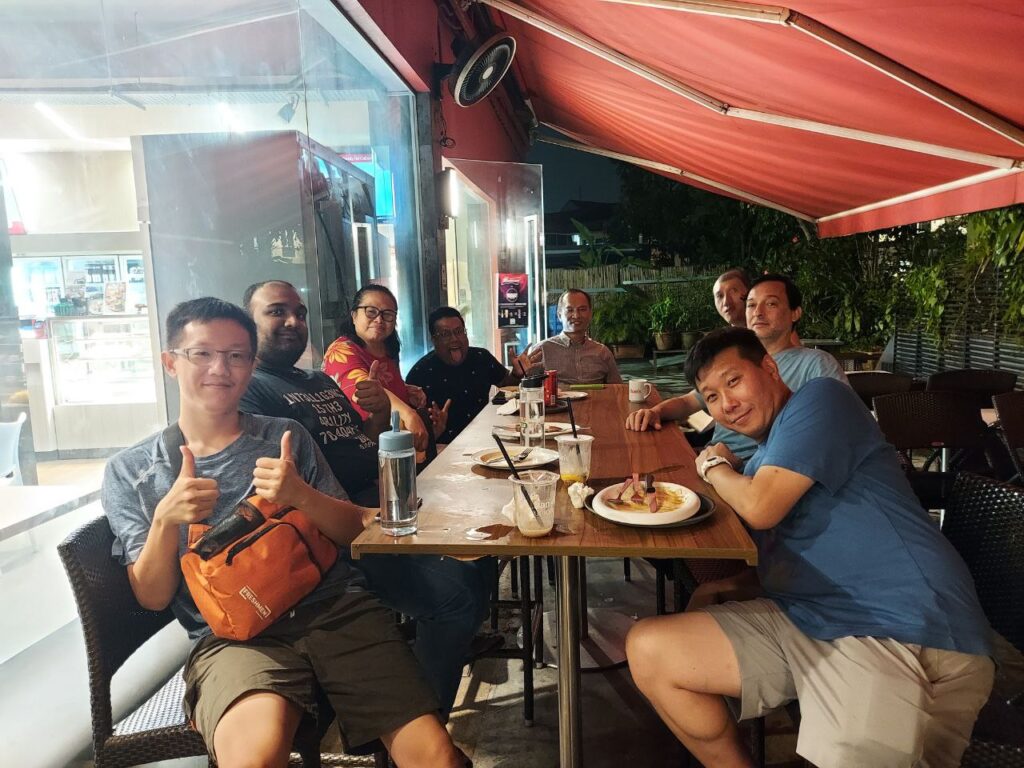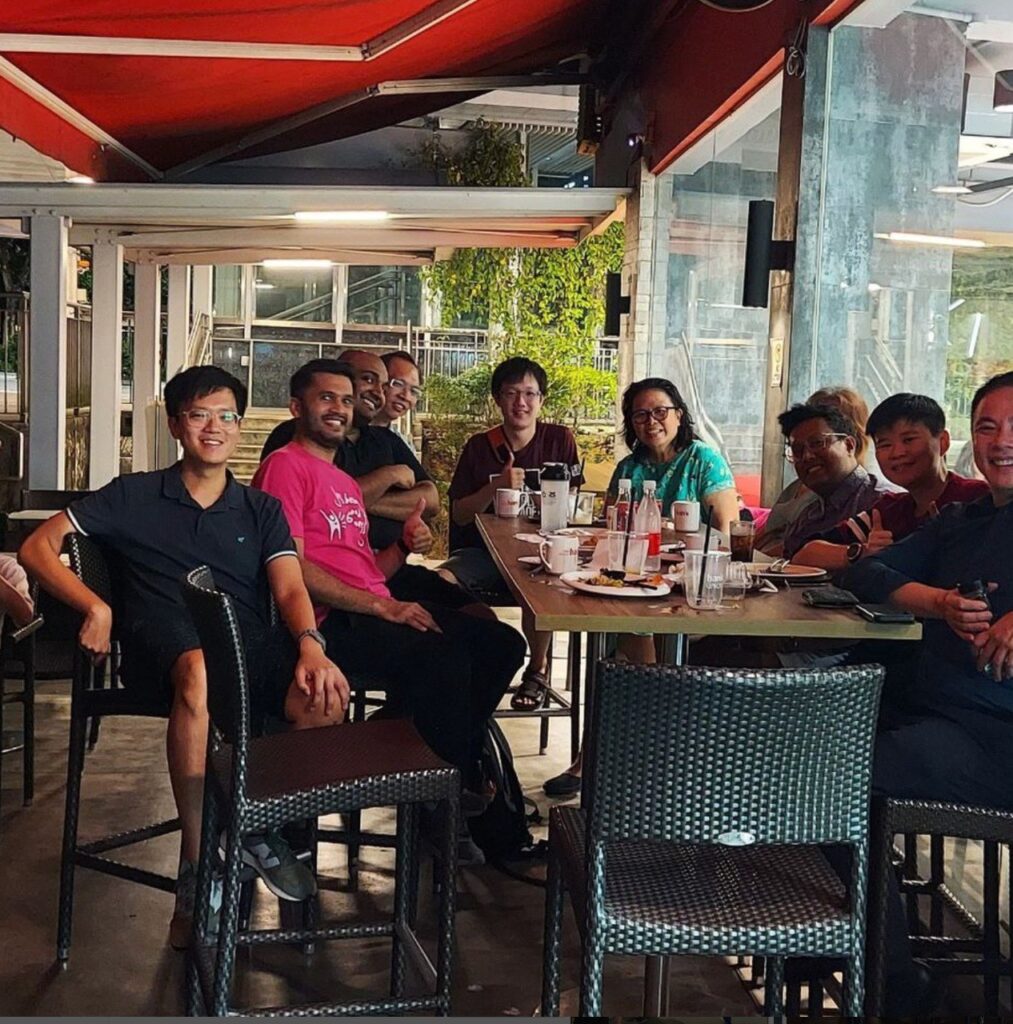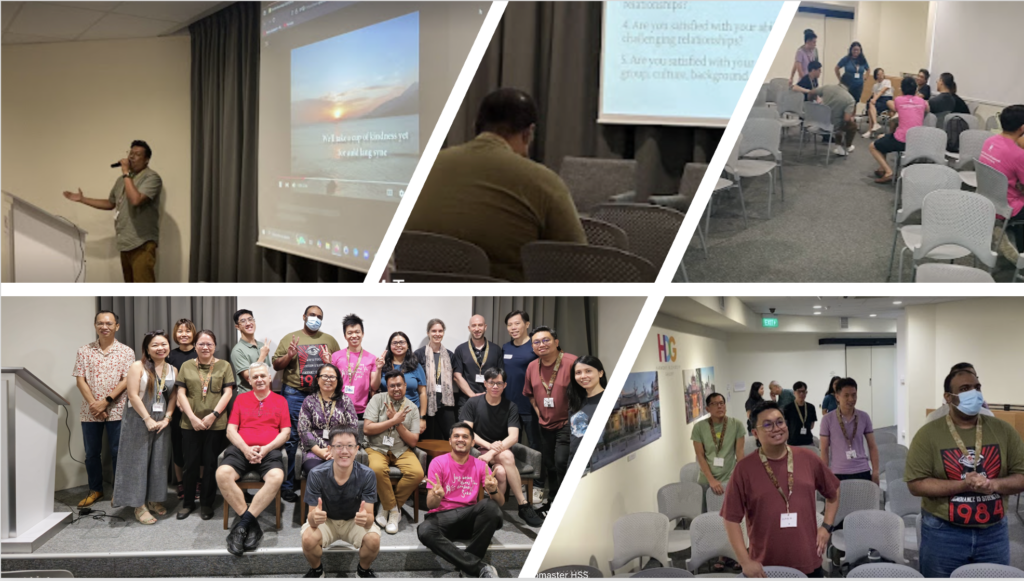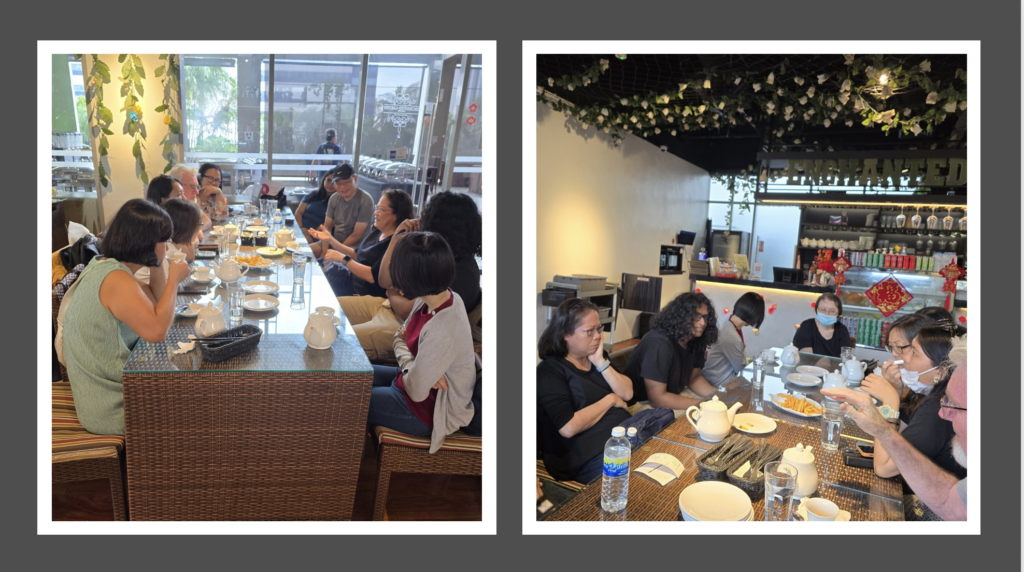
At our latest Humanist Café, we delved into some of life’s biggest questions: Have you truly lived or merely existed? Do you feel you’ve made the most of your life? These thought-provoking questions sparked deep and meaningful conversations among a diverse group of participants, with a balanced mix of younger and senior voices bringing unique perspectives to the discussion.
As the conversation unfolded, two key themes emerged:
A Sense of Belonging – Many shared that their most meaningful moments in life were shaped by the relationships they built, the communities they became part of, and the sense of connection they felt with others. Whether through friendships, family, or shared experiences, finding belonging played a crucial role in making life feel fulfilling.
The Purpose of Life – The discussion naturally led to reflections on what gives life meaning. For some, it was about pursuing passions and personal growth. For others, it was about making a difference in the lives of others or embracing new experiences with curiosity and courage.
One of the most powerful moments of the evening was when participants were asked: “Share one moment from your life when you felt truly alive.” Many spoke about experiencing the beauty of nature—whether it was standing before a breathtaking sunset, hiking in the mountains, or simply watching the waves crash onto the shore. These moments, filled with awe and wonder, reminded us of how deeply intertwined we are with the world around us.
The Humanist Café once again proved to be a space for open dialogue, reflection, and meaningful exchanges. It left us all with one important takeaway: Life is not just about existing—it’s about finding joy, purpose, and connection in the journey.
We look forward to more conversations that challenge, inspire, and bring us together.
Join us for the next session!
